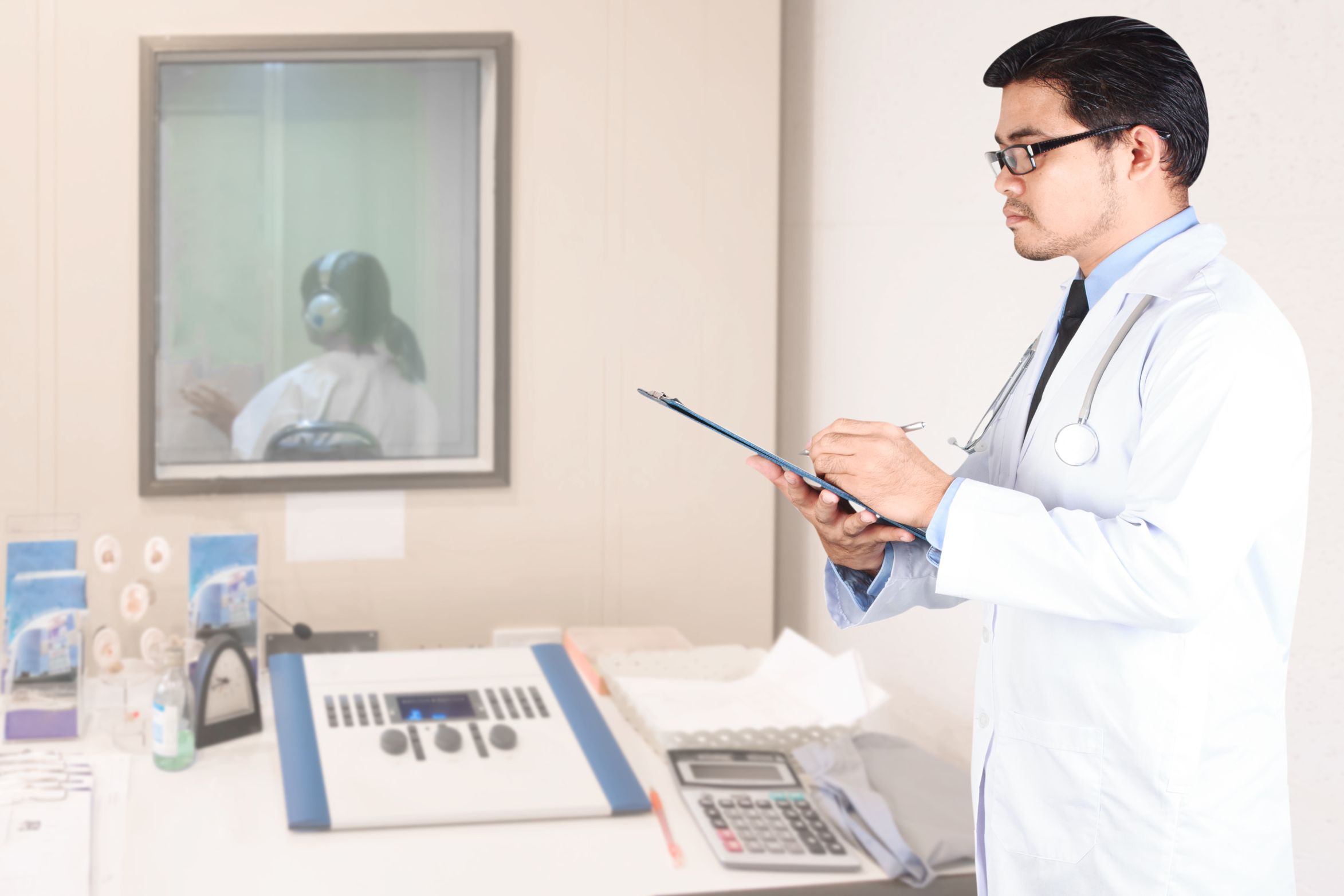An audiologist turns up the volume for those with hearing difficulties
An audiologist is a doctor that focuses on hearing and balance issues. Most will work with a doctors office, hospital or clinic. Some can work in schools or in an audiology practice. In order to continue to gain popularity as an audiology specialist, exploring new technology and treatment options is important. Audiology continuing education programs can keep the most up-to-date information at your finger tips. Some audiology practices that take on new staff from audiologist training programs may also benefit from the new staff persons knowledge base.
Audiology has evolved due to new advances in technology. Hearing aids and other devices like cochlear implants have made significant differences in the hearing ability of patients who use them. An audiology case study is a scenario that describes a hearing or balance problem that a patient might be having. Considering all aspects of the case can allow an audiologist to consider treatments and possible causes of the difficulties. Audiology case study can be a good way to improve diagnosis skills and if the study is done as a part of a team, then the many perspectives can add new thoughts to the conversation.
Since there is a license required for audiologists to practice in most states, taking classes or participating in relevant workshops can provide the necessary credits for license renewal. Audiologist continuing education can also be a marketing piece because the more cutting edge knowledge and skills that can be offered to the clientele, the better.
Audiology services are important for all ages, but there are certain populations that need more hearing and balance support. Aging people are liable to encounter more balance problems and of course, hearing loss can be a part of the aging process. Making sure that the price structure for services is one that can even seniors on fixed incomes can afford is something that would be nice. If you work with a clinic or hospital the fees may be out of your control, but investigating or offering grants and low cost loans to patients can assist them in paying their bills. In a private audiology clinic or practice, there may be some flexibility in the charges or the fees may be even steeper than the hospitals. Adjusting when appropriate can help keep the practice solvent while still helping people with their hearing and balance issues.
Some audiologist training programs can give you experience in different settings. From hospitals to clinics and private audiology practices, each facility will have its own mission and set of rules. Deciding which ones suit your style as a provider can help you when you work in your own practice or as a part of an existing one.
Advertising sounds like it would not be strictly needed for an audiology clinic or practice, but since there are more options for people to access hearing aids now, getting the name of the practice out there and perhaps making your price structure known can be a sound business move. Placing pamphlets and brochures in rehabilitation facilities, doctors offices that serve aging patients and even senior centers can help send clients your way.
An audiologist helps people with hearing problems and alleviates or treats some balance issues for people of all ages. While more people will be in need of audiology services in the future, a sensible marketing program to keep your name in front of the populations that may access your services is a good way to keep your practice healthy. Participating in workshops and classes that offer up-to-date information is also a great way to be the provider of choice for your clients.
Category: Audiologists
Related Articles
Business News
Popular Posts
- Universal Pursuit of Happiness - Wisdom from World Religions
- Overcoming Ego and Self-Centeredness - Lessons from World Religions
- Transcending Materialism - Spiritual Practices from World Religions
- Overcoming Prejudice and Intolerance - Guidance from Global Faiths
- How Mind Balance Can Improve the Mindsets of Employees
- Interfaith Insights by 1WorldPeace - The Top 100 Universal Beliefs in Global Spirituality
- Bridging Beliefs - Finding Common Ground in Love and Respect
- The SmartGuy Vision - A United Future Through Interfaith Love and Respect
- A Cautionary Vision - The Grim Future of a Divided World Without Love and Balance
- A Tapestry of Faiths - Exploring the Common Threads in World Religions
- Fostering Harmony Among Christianity Islam Buddhism Hinduism and Judaism
- Preparing Kids for Adulthood - 15 Vital Skills They Wont Learn in School
- Navigating Diversity - Jerusalem's Tactical Approach to Interfaith Harmony
- Clearing Mental Plaque: The Path to Enhanced Communication and Divine Connection
- Why Return to Jesus Christ and the Church
- Top 50 Ways to Live Longer
- Adventurous Romance -The Key to Enhancing Relationship Chemistry
- Pork Tenderloin with Mustard Cream Sauce
- Navigating Technology and Media for Optimal Mental Well-Being
- Understanding the Link Between Mental Health and Substance Abuse
